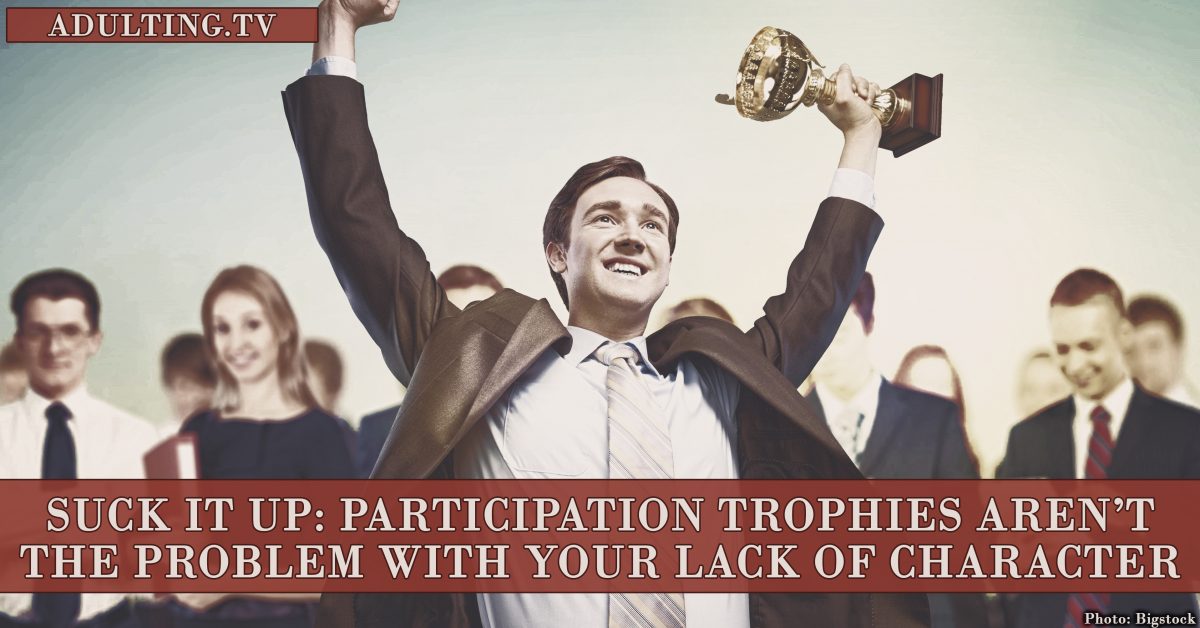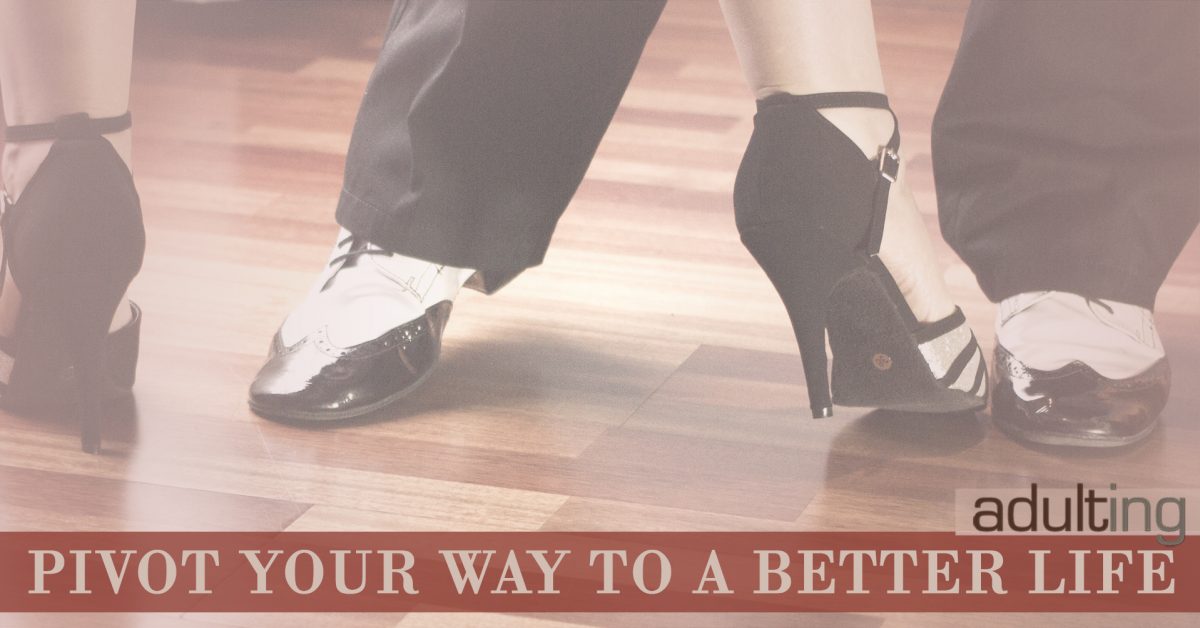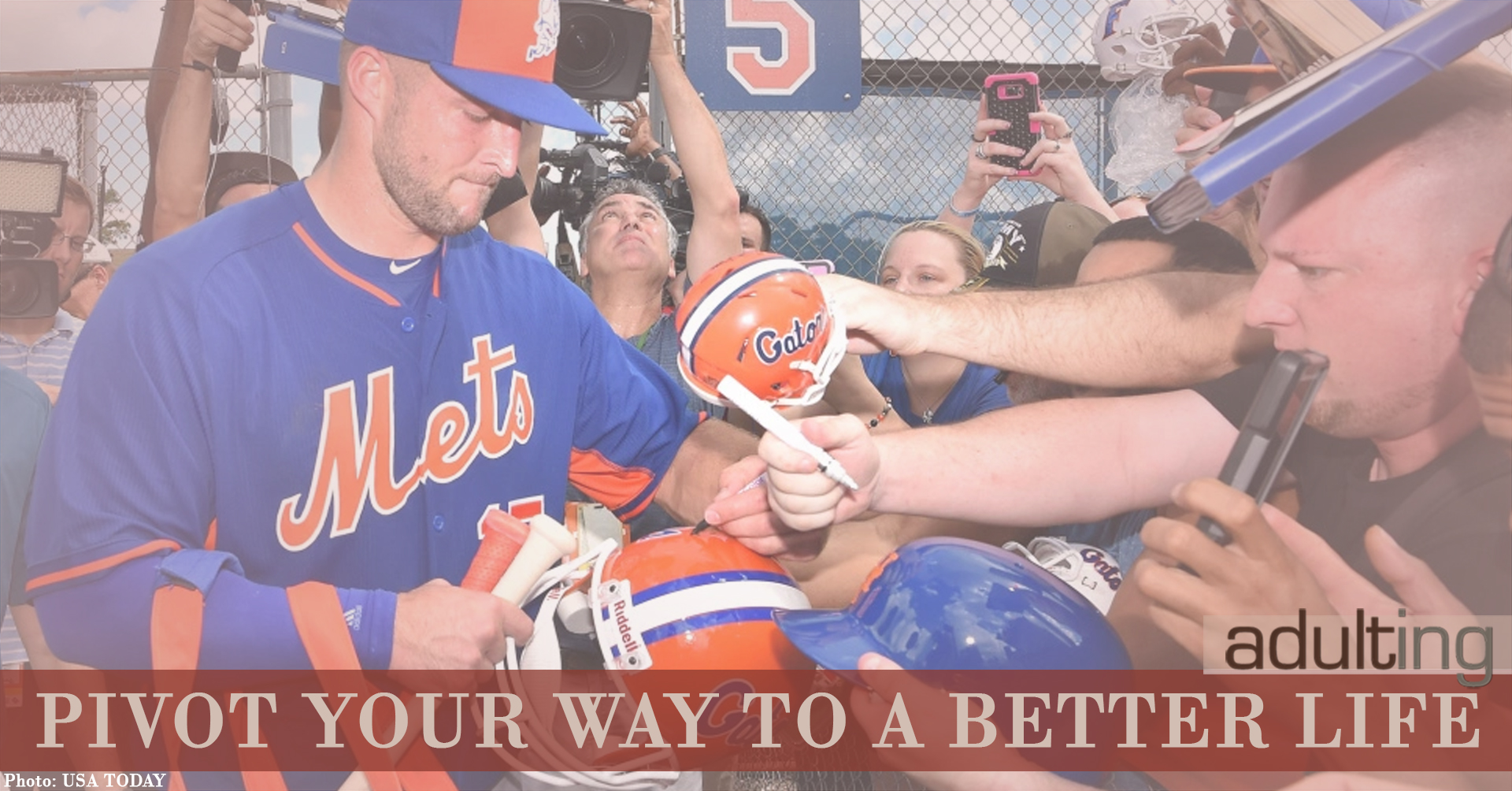We’re dealing with an epidemic.
It’s one that’s received a lot of attention for all the wrong reasons.
What’s the epidemic?
It’s an extreme lack of character and the expectation that everyone should win in every situation.
Nope. That’s not how life happens.
Participation trophies galore.
As I kid I received participation trophies or ribbons. I remember running a one-mile race at my elementary school in Boulder, Colorado (bastion of all that is crunchy) and receiving a ribbon for participating.
That acknowledgment of my participation is only that, an acknowledgment that I was there and finished what I did.
That’s about it.
The lessons that people fear aren’t being communicated during these acknowledgments:
- Life is hard.
- You lose sometimes.
- Life gives and takes unexpectedly.
Those lessons come to us all — Millennials, Gen-Xers, and all others — as time moves by. However, those lessons arrive at different moments, when you least expect it.
That is how life works.
Can you win (or lose) with grace?
Perhaps the problem people are really concerned about is a general inability to manage moments when they don’t win (or lose) with grace.
We just came out of a brutal election season.
I hope we never have an election this awful again. And, one of the most telling moments of that process was our fear that the loser would be unwilling to lose with grace.
When people who are running for the highest office in the land can’t be counted on to lose gracefully it’s time to acknowledge that we have deep cultural problems.
Character problems aren’t about participation trophies.
We have a character problem in America.
Nope, I’m not talking about a lack of fun and imaginative fictional characters. I’m talking about a depth of character that sustains people when times are tough.
Character is doing what you say, even when it puts you at odds with other people. Character is helping people perceived as weak without any expectation of receiving something in return.
What happened to us?
It’s my belief that parents (and society in general) have tried to shield people from the reality of difficult times.
We had the rise of helicopter parents and increased litigation. People stopped acknowledging when the fault for something was theirs, and their fault only.
Basically, there is an extreme lack of responsibility for our own actions.
I received participation trophies, but those trophies didn’t eliminate my ability to take responsibility for actions that I’ve taken in my life.
Even if I didn’t want to be held accountable for the things that I’ve done or will continue to do life will hold me accountable (or karma).
How our society fails at building character.
Let’s go through a list of recent controversial situations where people weren’t held accountable for their actions until society or karma decided otherwise:
- Bill Cosby: It was hard for me to believe that America’s favorite dad could be such a douchebag. But, apparently, he is. And, if you’re not sure about this, he did go blind (karma is a bitch). By the way, his trophy was fame.
- George Zimmerman: This guy shot and killed Trayvon Martin and then was found not guilty. He has experienced increasing escalations of public beat downs, and altercations with other people that have found their way in the news. I’m also sure that he eats a lot of spit hamburgers. His trophy was notoriety.
- Former Sheriff Joe Arpaio: This Arizona lawman was infamous for the prison conditions that prisoners in his jails experienced. I believe he ate a lot of spit burgers too, but he’s no longer Sheriff anymore. His trophy was power.
- Brock Turner: You know, the guy who raped that young woman who was unconscious and was given three months and time served. Well, I remember what he looks like and I’m 100% sure he will be eating a lot of spit burgers too for the rest of his life. His trophy swimming accolades.
So, what is the point to sharing such extreme examples?
Regardless of how much we would like to protect people from the hard things that happen in life, or the bad or good choices that we make, sooner or later life happens and we all have to take responsibility for our actions.
Demand character from our public figures (and ourselves).
Participation trophies aren’t our problem.
Our ability to accept less-than-ethical behavior and lack of depth of character is our problem.
Parents, friends, and family who poo-poo this are also a part of the problem. Adults of all ages struggle with managing their personal character.
Do you keep your word to others? Do you acknowledge when you’re in the wrong? Do you intuitively know when you’re not accepting responsibility for you?
Truly becoming an adult is knowing — truly knowing — and acknowledging your role in how you’re perceived by others. You shouldn’t pass the buck to not holding yourself to a higher standard because your participation was rewarded or acknowledged when you were younger.
And it’s time we demand the same of those we look up to.









